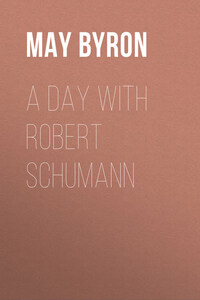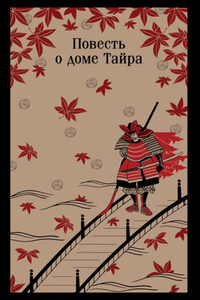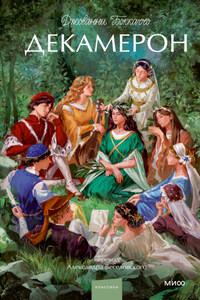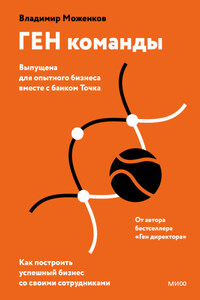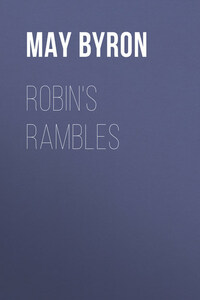It is an April morning in 1844, in the town of Leipzig, – calm, cool, and fraught with exquisite promise of a prolific spring, – when the Herr Professor Doctor Robert Schumann, rising before six o'clock as is his wont, very quietly and noiselessly in his soft felt slippers, dresses and goes downstairs. For he does not wish to disturb or incommode his sleeping wife, whose dark eyes are still closed, or to awaken any of his three little children.
The tall, dignified, well-built man, with his pleasant, kindly expression, and his air of mingled intellect and reverie, bears his whole character written large upon him, – his transparent honesty, unflagging industry, and generous, enthusiastic altruism. No touch of self-seeking about him, no hint of ostentation or conceit: he is still that same reticent and silent person, of whom it was said some years ago by his friends,
"Herr Schumann is a right good man,
He smokes tobacco as no one can:
A man of thirty, I suppose,
And short his hair, and short his nose."
That, indeed, is the sum total of his outward appearance: as for the inward man, it is not to be known save through his writings. Literature and music are the only means of expression, of communication with others, which are possessed by this modest, pensive, reserved maestro, upon whom the sounding titles of Doctor and Professor sit so strangely.
In the unparalleled fervour and romance of his compositions, – in the passionate heart-opening of his letters, – in the sane, wholesome, racy colloquialism of his critiques, – the real Robert Schumann is unfolded. Otherwise he might remain a perennial enigma to his nearest and dearest: for even in his own family circle, tenderly and dearly as he adores his wife and children, his lips remain sealed of all that they might say: and the fixed, unvarying quietude of his face but rarely reveals the least suggestion of his deeper feelings.
Yet, at the present time, were you to search the world around, you should hardly find a happier man than this, in his own serene and thoughtful way. For, in his own words, "I have an incomparable wife. There is no happiness equal to that. If you could only take a peep at us in our snug little artist home!" Clara Wieck, whom he has known from her childhood, whom he struggled, and agonised, and fought for against fate, for five long years of frustration and disappointment, is not only his beloved wife and the mother of his little ones, – she is his fellow-worker and co-artist, and literal helpmate in every department of life. She has "filled his life with sunshine of love," – and, "as a woman," he declares, "she is a gift from heaven… Think of perfection, and I will agree to it!" But, beyond that, she has poured her beautiful soul into every hungry cranny of his artistic sense. "For Clara's untiring zeal and energy in her art, she really deserves love and encouragement… I will say no more of my happiness in possessing a girl with whom I have grown to be one through art, intellectual affinities, the regular intercourse of years, and the deepest and holiest affection. My whole life is one joyous activity."
The annals of art, indeed, hold no more lovely record of a union between natural affinities. That of Robert and Elizabeth Barrett Browning perhaps approximates most closely to that of Robert and Clara Schumann. But whereas in the former case both husband and wife were alike engaged upon the same branch of literature, – poetry, – and a certain sense of sadness was apt to embitter the success of the wife, because of the unpopularity (in those days) of the husband, – Schumann is solely and pre-eminently a composer, and Clara solely and absorbingly a pianist. No shadow of artistic rivalry can fall upon their delight, nor darken their pleasure in each other's achievements. Schumann's most impassioned and characteristic productions have been definitely inspired by Clara, ever since the days when, as a child of nine, she listened to his fantastic fairy-tales, and her exquisite playing thrilled him with a desire to think in music. And Clara, who has never made a mere show of her marvellous executive skill, but has "consecrated it to the service of true art alone," – is never happier than when interpreting her husband's works.
It is, in short, necessary to deal with Schumann as a whole, – as a man who has fulfilled the triple destiny for which Nature intended him, – as individual, husband, and father, – before one can even approximately understand this silent, studious dreamer, whose one ideal of happiness is to sit at home and compose.
Schumann considers this early morning hour the most precious of his day, from a working standpoint. He seats himself at his desk, and places his two treasures where they shall catch his eye conspicuously; for he regards them more or less as charms and talismans to bring out the best that is in him. They are, a steel pen which he found lying on Beethoven's grave at Vienna, and the MS. score of Schubert's C-major Symphony, which he obtained by a lucky chance. He regards these with a mixture of sentiment and humorous toleration of his own mysticism: but he cherishes them none the less, and often casts a reassuring glance in their direction, as he covers sheet after sheet of paper with his shockingly illegible handwriting. "Poets and pianists," says he with resignation, "almost always write with a dog's paw. The printers will make it out somehow." He is engaged upon his work in connection with the
